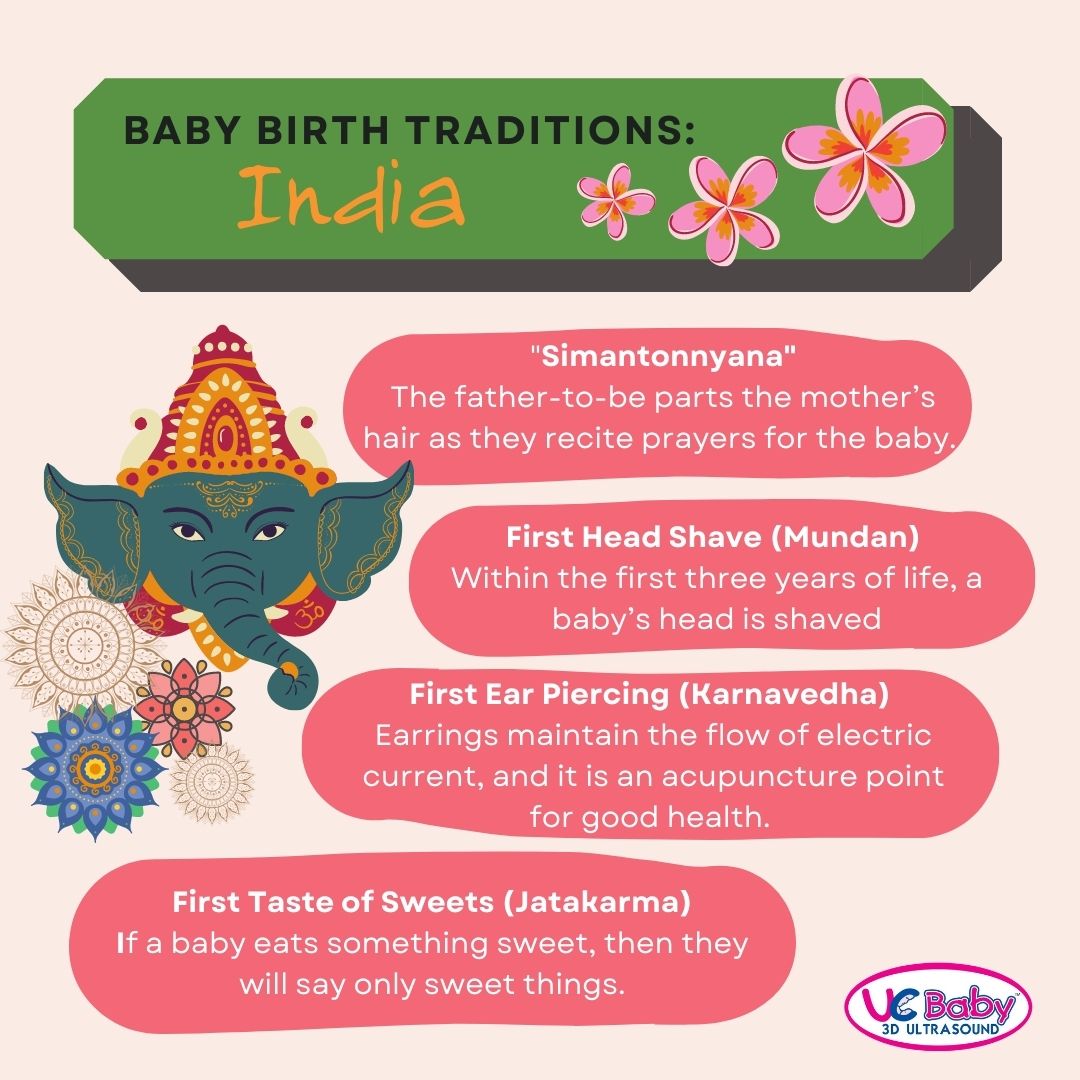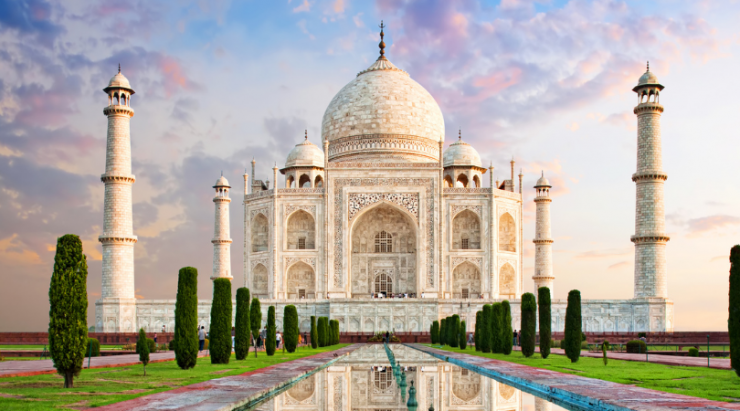Baby birth traditions are some of the most beautiful customs and practices around the world. India is a country full of beautiful ceremonies, traditions and culture. Baby birth traditions in India put primary importance on the baby’s firsts – first head shave, first words, first ear piercing, firsts words to hear.
India is a country in South Asia that boasts a population of 1.37 billion people. During the last census in 2016, Indo-Canadians were approximately 4% of the population, and that number is rapidly growing every year.
This blog will explore and learn more about baby birth traditions from India’s populous country, some of which have been brought over to Canada.
So, what are the popular baby birth traditions in India?
With a population of over 1 billion people, it is expected that there would be a lot of diversity of culture and religion in India. India has large Hindu, Sikh, and Muslim religious groups. With these spiritual differences come dissimilarities in their traditional baby birth celebrations. Although, there is more overlap than people think.

Signs of Affection and Love (Simantonnyana)
Before the baby is born, a Hindu culture ritual is performed in the seventh month of pregnancy. The father-to-be parts the mother’s hair as they recite prayers for the baby. The purpose is to pamper and bring relaxation to the mother because the mother’s mood affects the child. The rituals for the child’s wellbeing begin before the child is born.
First Words a Baby Hears (Azaan/ Adhan)
The words a baby hears determine their cognitive development. That is why in the Muslim culture, the first words a baby hears is a call to prayer whispered in their right ear by one of their parents. This is called the adhan or azaan. The call to prayer states, “God is great, there is no God but Allah, Muhammad is the messenger of Allah. Come to prayer.” This is the baby’s first introduction to their family religion.
First Head Shave (Mundan)
Mundan ceremony is of great importance in both Hindu and Muslim cultures. Within the first three years of life, a baby’s head is shaved for two different reasons. For Muslims, it is a sign of the baby being a servant of Allah. For Hindus, it rids the child of any negativity from a past life.
Due to the varied reasons for this ritual taking place, the disposal of the hair also changes. In Islam, the hair is sometimes weighed and then the equivalent weight in silver is given to the poor. In Hinduism, it is common that the hair is scattered in the sacred Ganga River in India.
It is not good to do the ceremony before the baby is one month old due to sensitivity.
First Ear Piercing (Karnavedha)
Karnavedha can be performed at the same time as the Mundan. Sometimes, it is just for girls, but in other cultures, boys are pierced as well. In Hindu culture, piercing can help with the menstrual cycle, the earrings maintain the flow of electric current, and it is an acupuncture point for good health. When choosing earrings, remember that babies tend to pull on hoops. Remember to keep the piercing site clean for the baby’s health.
First Taste of Sweets (Jatakarma)
If a baby eats something sweet, then they will say only sweet things. In Hinduism and Islam, this belief is very important to them, and thus they feed their babies with honey. Muslims take a softened date with honey and rub it on a baby’s tongue. Hindus use only honey and place it in the baby’s mouth.
First Community Introduction
The child’s first community introduction tends to be an integral part of most ethnic and faithful communities. In Sikh culture, within the first 40 days of life, a priest reads a passage from the Guru Granth Sahib at random. The first letter of the verse is used to name the baby and is announced to the community, followed by the distribution of a sweet dish to celebrate.
While these traditions are typically performed on religious grounds, at their core, they are about ensuring both the physical and emotional health of the child in the present and future. That is something that all cultures can relate to.
REFERENCES:
12 Spiritual Rituals That Honor The Arrival Of A New Baby
5 Indian Rituals For Babies Whose REAL Purpose You’d Never Have Guessed!
Your Guide to Traditional Indian Rituals for Newborns
Check out our Baby Birth Tradition blog series – Baby Birth Traditions – China
Written by: Gabrielle Goldson





 Invite families and friends to witness this memorable event of your pregnancy. Celebrate that special child-bonding moment with your loved ones, wherever they are in the world.
Invite families and friends to witness this memorable event of your pregnancy. Celebrate that special child-bonding moment with your loved ones, wherever they are in the world. There is nothing more beautiful than your baby's heartbeats. Save that sound forever in a UC Baby® Heartbeat Bear®. It's not just a great keepsake, but also an effective way to sooth your baby to sleep.
There is nothing more beautiful than your baby's heartbeats. Save that sound forever in a UC Baby® Heartbeat Bear®. It's not just a great keepsake, but also an effective way to sooth your baby to sleep.

